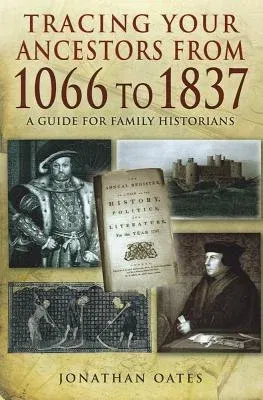Jonathan Oates
(Author)Tracing Your Ancestors from 1066 to 1837: A Guide for Family HistoriansPaperback, 19 March 2012

Qty
1
Turbo
Ships in 2 - 3 days
In Stock
Free Delivery
Cash on Delivery
15 Days
Free Returns
Secure Checkout

Part of Series
Tracing Your Ancestors
Print Length
160 pages
Language
English
Publisher
Pen and Sword Family History
Date Published
19 Mar 2012
ISBN-10
1848846096
ISBN-13
9781848846098
Description
Product Details
Author:
Book Format:
Paperback
Country of Origin:
GB
Date Published:
19 March 2012
Dimensions:
23.11 x
15.49 x
1.02 cm
ISBN-10:
1848846096
ISBN-13:
9781848846098
Language:
English
Pages:
160
Publisher:
Series:
Weight:
362.87 gm